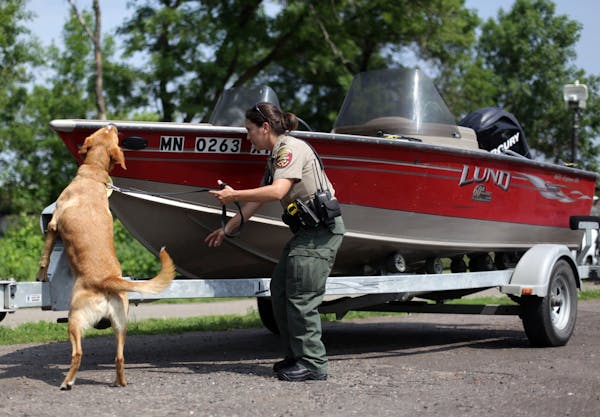Legal wrangling over Mille Lacs continues, with attorney Erick Kaardal of Minneapolis asking the Minnesota Court of Appeals to invalidate the Department of Natural Resources' Mille Lacs management scheme in favor of one that considers the lake's "hunting and fishing heritage."
"Management of Mille Lacs, like all Minnesota natural resources, must be in accordance with the state constitution, including the hunting and fishing heritage of those resources," Kaardal said. "The DNR has failed to do so on Mille Lacs."
The case began April 24 when Kaardal asked the appeals court to rule that the DNR has not managed Mille Lacs in consideration of the cultural heritage that has developed around more than a century of walleye fishing on the lake.
Representing sport anglers and a resort operator, Kaardal said Minnesota natural resource management must consider a resource's hunting and fishing heritage.
The DNR responded May 29 by filing more 18,000 pages of biological and other records the agency says support its current Mille Lacs management.
But nowhere in the voluminous filing is evidence the DNR has considered Mille Lacs' fishing heritage, Kaardal claims.
"That heritage is one of walleye fishing, not smallmouth bass fishing or northern pike fishing, which the DNR is attempting to change it to on Mille Lacs," Kaardal said.
Kaardal again asked the court to throw out the DNR's Mille Lacs management plan on July 11. "The omission in their 18,000 pages is so egregious we want the court to direct the DNR to follow the constitution regarding hunting and fishing in all of its actions, not just regarding Mille Lacs," he said.
On July 13, the DNR announced the night fishing ban was being lifted from Mille Lacs. The same day, an assistant state attorney general handling the Mille Lacs case for the DNR left Kaardal a phone message, asking whether lifting the ban might prompt his clients to drop their suit.
"But this is about more than just the night ban," Kaardal said.
The DNR is expected to file another response to the court within about two weeks.
The lake's fish harvest has been co-managed by the DNR and eight Chippewa bands since 1999, when the U.S. Supreme Court affirmed that the bands reserved off-reservation hunting and fishing rights in an 1837 treaty signed with the federal government.
Dennis Anderson • danderson@startribune.com
Anderson: Anglers protesting tough new Mille Lacs rules are wrong

Anderson: Courts, not politicians, should rule on Red Lake, White Earth lands

Anderson: Multimillion windfall gets invasive carp deterrent moving
![A young whitetail deer searches for food as another blanket of snow coats the arrowhead. ] Minnesota -State of Wonders, Arrowhead in Winter BRIAN PETE](https://arc.stimg.co/startribunemedia/WK32UWWY6FKNWJUIYCJ6ZPT4AU.jpg?h=91&w=145&fit=crop&bg=999&crop=faces)
Anderson: In NE Minnesota, DNR staff, habitat and deer all decline


